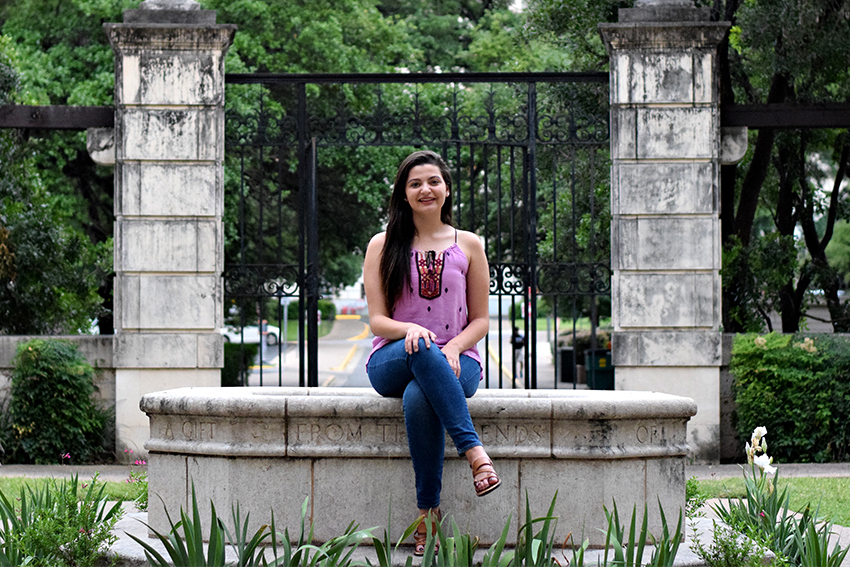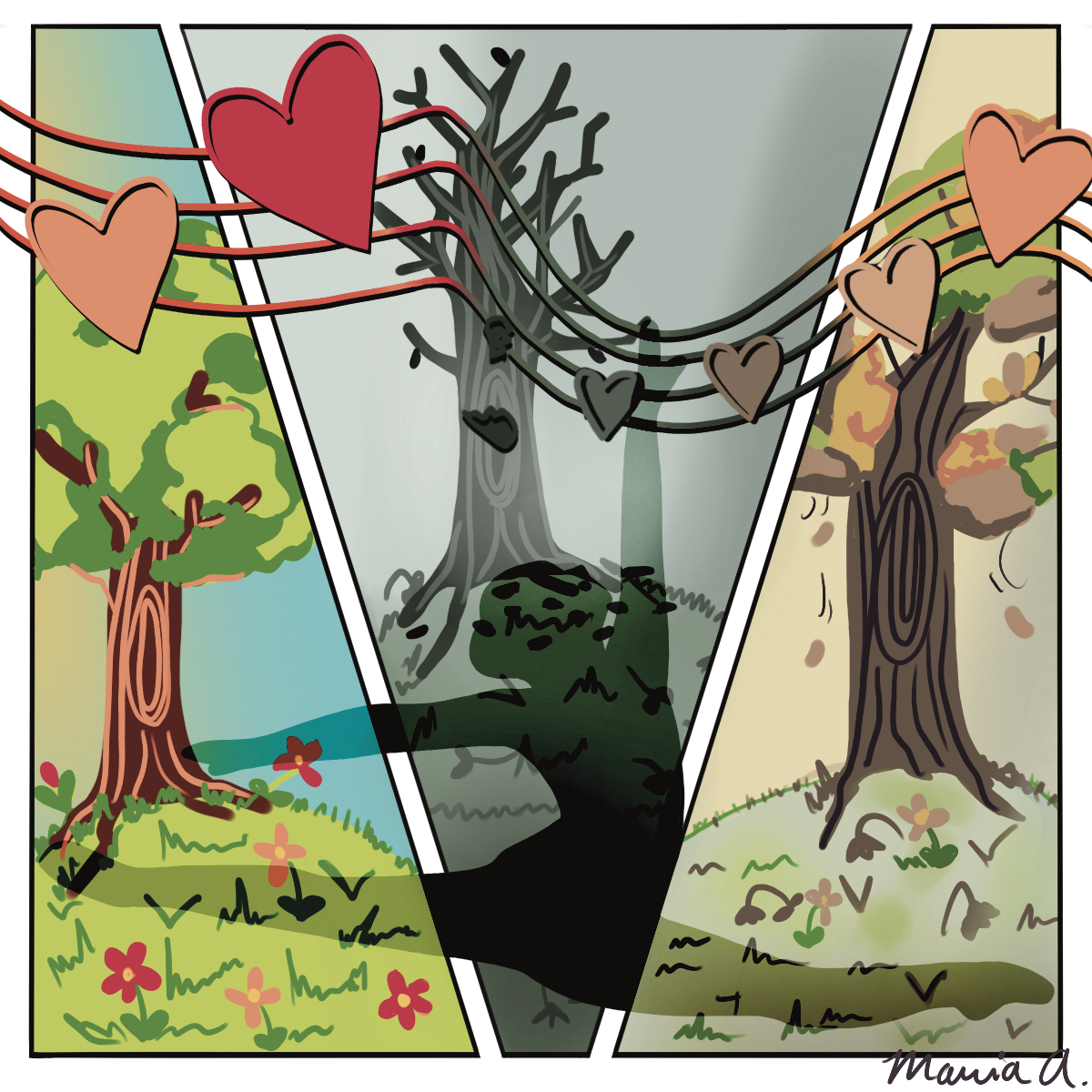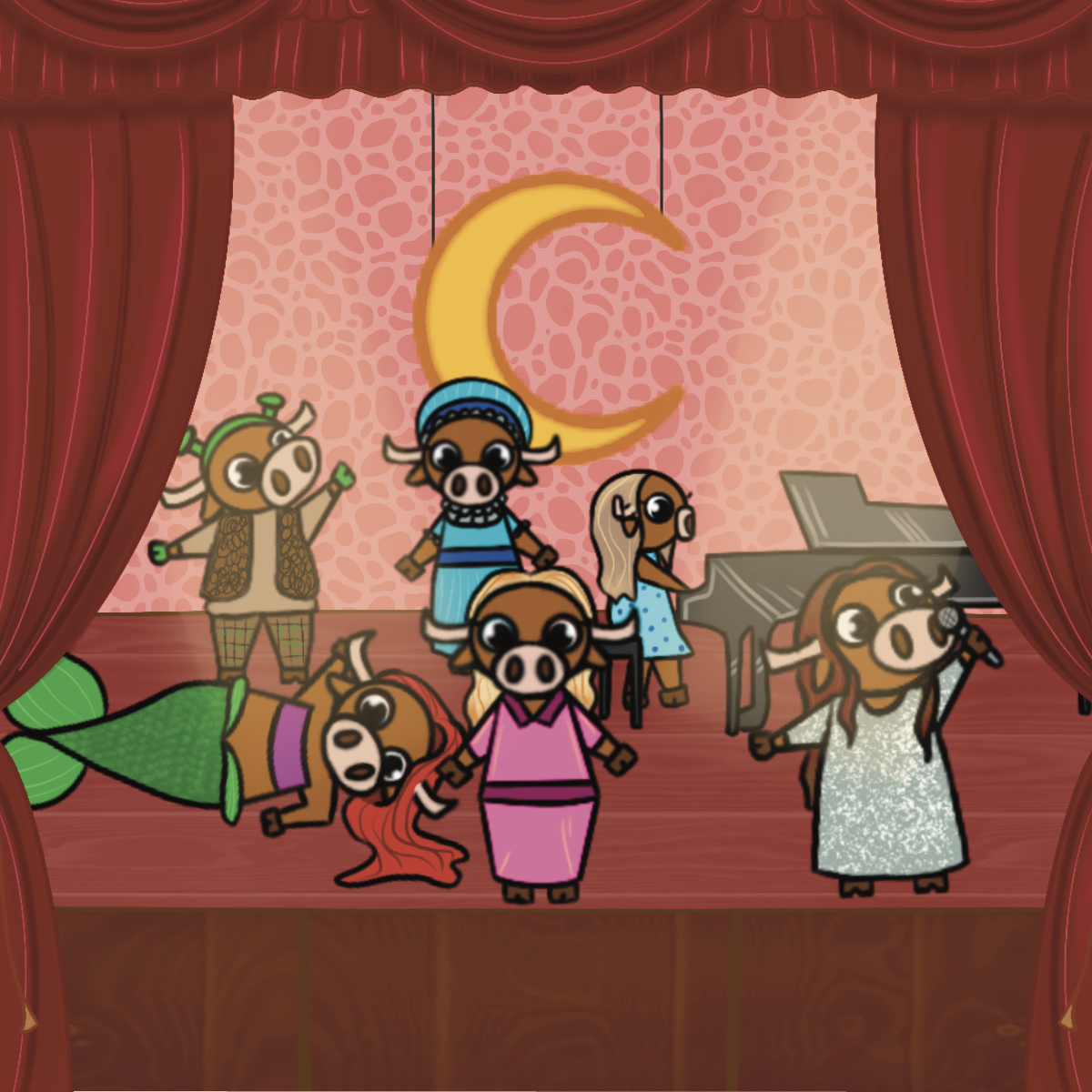When Marianna Garcia thinks of Venezuela, she thinks of her family’s toy store — the oldest in Caracas — the beaches of Puerto la Cruz her family drove to on Christmas day and the mango trees planted in her grandmother’s backyard.
Last December, soldiers raided the toy store and her family declared the road to the beach too dangerous to travel.
Behind her grandmother’s house, the mango trees are still standing.
“I feel like the country is becoming this corpse, this skeleton of a place, and that’s what my family doesn’t want me to come back to,” Garcia said. “My cousin told me, ‘I don’t want you to come back, because the memories you have are not of this place.’”
Garcia, a communication studies junior, was born in Venezuela but moved to the U.S. when she was two years old. At first, her family went back for months at a time, spending entire summers there. As she got older, the summer vacations were shortened to a month, and then her parents told her worsening political turmoil meant they weren’t going at all. It's been four years since she's been able to return.
“It started getting more and more complicated,” Garcia said.
By 2012, then-president Hugo Chavez was running for his third term, his socialist party was in control of Congress and the inflation rate was one of the highest in the world. With record murder rates that haven’t stopped climbing, Garcia said her family had to be extremely cautious when traveling back.
“As a kid, my Spanish was horrible, and my family would make fun of it,” Garcia said. “But as I got older and the situation [in Venezuela] got worse, my parents would tell me not to speak in public. We could’ve been targeted for kidnapping or robbery because they could tell by my accent I wasn’t from there.”
Since her last visit in 2012, she’s had to keep up with the situation through phone calls and news articles. She said several of her family members are trying to move to the U.S., but not all of them can afford it.
“I talked to my cousin earlier this week, and she just said ‘I’m trying so hard not to think about the state of the country because I can’t walk out the door, I can’t go to school without thinking about living in the most dangerous place in the world,’” Garcia said.
Government professor Kurt Weyland stuides democratization and authoritarian rule and has done field research throughout Latin America in countries from Venezuela to Chile. He said the oppositional party in Venezuela has tried to put a stop to the current president’s term through a recall referendum, which requires millions of signatures. But at every turn, the government has managed to stall the process.
“The country is in crisis,” Weyland said. “There are shortages of basic goods, food is rationed, they economy is totally tanking…if the recall referendum is successful, then you’ll have a new start for the country.”
Garcia said in the past, she didn’t really identify with her heritage. But after seeing her parents fly to Venezuela just to vote or knowing her cousin stood in line for almost three hours just to sign the referendum, she said she’s prouder than ever.
“I’ve never felt more Venezuelan,” Garcia said. “I’ve learned about identity and what it means to be brown, and I finally feel like this is who I am. It’s not just this part of me that I got to be when I go on vacation there.”





















